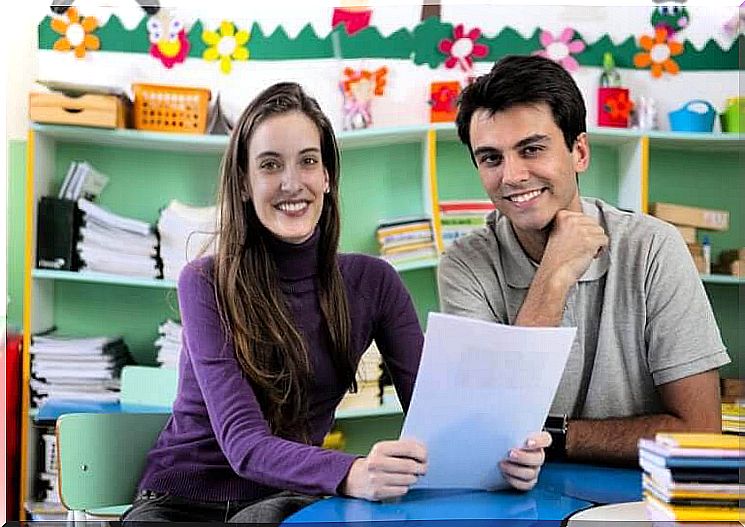The Importance Of A Culture Of Cooperation In School

In order for children to receive a good education, teachers, families and even other professionals must work together to achieve this. At the same time, it is important that there is a culture of cooperation in the school and a willingness from all sides to work together.
In this way, all students can achieve the goals that the school sets for them. When those responsible for the children’s education are in good communication with each other, it contributes to the children developing intellectually at a much faster pace.
The importance of a collaborative culture in the school
In order for teachers to be able to get involved in a collaborative culture in the school, they must have sufficient education and possess competence in several areas. According to psychologist Gerardo Echeita, these are:
- Have a well-thought-out and critical attitude
- Be curious and take the initiative
- Know how to search for and collect relevant information
- Be strategic
- Be able to work as a team
- Be able to maintain good communication, dialogue and active listening
- Know how to ask for and offer help

- Be able to show empathy
- Establish relationships with reciprocity and trust with other teachers and with students
- Take risks and be open to change
- Know how to set goals to get better and have a will to continue learning
For this to work, teachers must try to abandon traditional methods and individualism. Instead, they should learn to teach materials together with other professions and also with the families.
To do this, it is important that the school has a team that believes in inclusive education. There must also be good coordination between them, and a clear definition of what roles each must play.
In this regard, special needs teachers, counselors, tutors and others involved who may be needed in the school should work together when they:
- Prepares teaching materials
- Monitors and evaluates students and themselves
- Trying to detect and assess students with learning disabilities
- Draws attention to diversity and offers educational support
Families and their duty to cooperate
Families must also do everything possible to get involved in the development of a culture of cooperation in school. How well they interact with the school is of great importance for learning to be as effective as possible.
Therefore, parents and guardians should be actively involved in their children’s schooling by:
- Participate in activities offered by the school
- Attend meetings and both individual and general parent meetings
- Fill in questionnaires and papers that the school sends home to them
- Read documents or information that the school deems necessary
- Collaborate with the school to improve education and contribute to innovation
In this way, the school can find out the parents’ opinions and perspectives and their ideas for improvement. There are so many benefits when the school listens to the parents and then involves them in the decision-making process.
In addition, parents can give their opinion on how the school treats, handles and educates the students.

The benefits of a culture of collaboration in school
When a school implements a culture of collaboration, it has a positive impact on all students. This is especially important for those with special educational needs. In these cases, the teacher must try to maintain good communication with the students and their families regarding:
- Behavior
- Needs
- Problem
- Conflicts
- Difficulties
- And finally the student’s achievements
In this way, participation and learning from all sides are promoted. In addition, by following these methods, the teacher creates a spirit of cooperation between the students in the classroom. Students benefit from a climate of diversity where respect is promoted and where they learn to spend time with all children, regardless of disability or background.
In short, a collaborative culture in the school has practical benefits that are positive for everyone involved. We can all contribute to improvements and innovations in education if we work together with commitment and enthusiasm.









